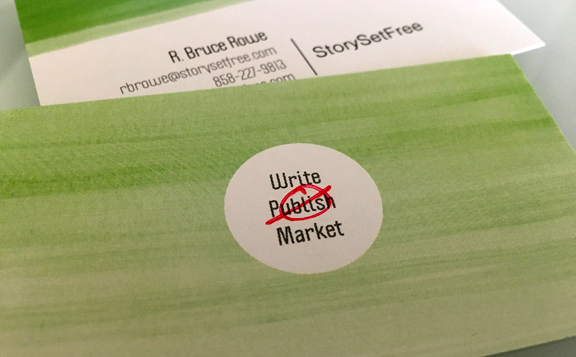Part of the services I planned to offer at StorySetFree was taking on the tasks associated with getting you published. It has been a complicated and challenging process, requiring meticulous formatting and conversion of documents—usually composed in Microsoft Word—so they will properly display (eBooks) or print. Different publishers want different formats, among them EPUB, MOBI, PDF, and HTML.
“I know how to do that. People will want my help,” I thought.
“Not so fast,” said the folks at FastPencil, now rebranded as Opyrus.

It makes total sense. Why wouldn’t some smart coders and business folks figure out how to simplify a cumbersome process? And so they did.
I haven’t dived too deeply into it, but from a presentation by Steve Wilson, the founder of Opyrus, it looks like a most-wonderful new development for you, the author.
The promise is that they will make it easy to upload, format, and distribute your book to just about everywhere you need to be, on both electronic and physical bookstore shelves. It looks like they are delivering on that promise. And you can start for free.
Thanks a lot Opyrus.
BUT… I’m not having to apply at the supermarket or fast food joint just yet. You still need quality content before Opyrus can help you package it. The very same Mr. Wilson reminded us that of all people who want to write a book, less than 10 percent finish one.
One simple reason behind that stat is that writing takes a lot of time. Time you probably don’t have even if you have some writing skills. Good collaborators/ghostwriters also know how to draw the most interesting information and stories out of their subject matter experts. (That’s you.)
Just as importantly, real skill in writing is not widely available. Many kids play sports, but only an elite few will ever develop the skill to get paid to do it, and only a tiny fraction of those will ever play at the highest level. The same percentages apply to writing ability.
Writing is a special skill and the quality of your book is more important than ever. With an estimated one million titles self-published last year, you need to do all you can to stand out. You can do that if you work with an elite writer as your collaborator (ghostwriter). It’s a good investment.
It’s clear in all kinds of industries that software for automating routine or tedious tasks is the way of the future. It’s only natural that publishing is riding that trend as well. We professional writers should not deny that or try to hang on to this part of our turf at your expense (literally).
To learn more, go see Opyrus for yourself.
Opyrus isn’t your only option. Read more about publishing options here.
Disclaimer: I have no affiliation with Opyrus/FastPencil. I just know how much easier it will make life for you if you want to write a book.

